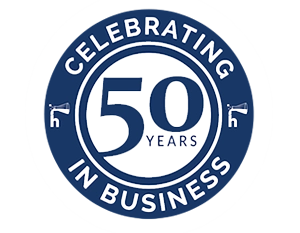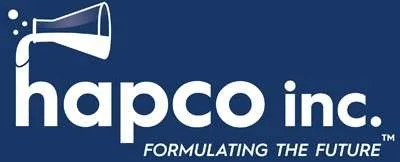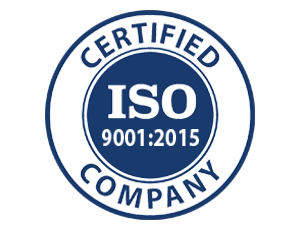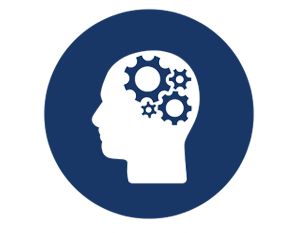Liquid Molding Monthly
How to Navigate Import and Export Certifications for the Best Casting Materials Globally
In the ever-evolving global marketplace, the significance of high-quality casting materials cannot be overstated. According to a recent report by Research and Markets, the global casting market is projected to reach $465 billion by 2026, driven by increasing demand across various industries such as automotive, aerospace, and manufacturing. With China being a leading producer of casting materials, sourcing from top-tier factories has become essential for businesses seeking reliability and excellence. However, navigating the complex landscape of import and export certifications can pose challenges for both manufacturers and consumers. Understanding the certification process not only ensures compliance with international standards but also enhances trust and quality assurance. This blog will guide you through the essential steps to effectively navigate import and export certifications for the best casting materials globally, showcasing how Chinese factories cement their position in this competitive market.

Understanding the Importance of Import and Export Certifications in Casting Materials
Understanding the importance of import and export certifications in the casting materials industry is crucial for businesses looking to thrive in a competitive global market. Certifications not only ensure compliance with regulations but also enhance product quality and safety, which is vital in industries such as automotive and aerospace. According to a report by MarketsandMarkets, the global casting market is projected to grow from $146.5 billion in 2020 to $200.76 billion by 2025, emphasizing the need for reliable materials that meet international standards.
Incorporating proper certifications can also facilitate smoother cross-border transactions.
For instance, the International Organization for Standardization (ISO) has established specific standards that enhance credibility and operational efficacy in supply chains. A study from Grand View Research indicates that companies with ISO certifications enjoy a 50% reduction in risk during the export process, making these certifications not just a regulatory requirement but also a strategic advantage. Thus, navigating import and export certifications effectively is paramount for businesses aiming to secure quality casting materials and maintain a competitive edge in the global marketplace.
Key International Standards for Casting Material Certifications to Know
When dealing with casting materials in the global market, understanding key international standards for certifications is crucial. Organizations like ASTM International and ISO provide guidelines that ensure products meet specific safety and performance criteria. For instance, ASTM A532 is a standard specification for abrasion-resistant cast irons, which is vital for industries like mining and construction. Familiarizing yourself with these standards enables manufacturers to produce high-quality products that are compliant with international expectations.
Tip: Always verify the certification of your suppliers to avoid complications later. This step not only protects your business but also ensures that you are sourcing materials that meet industry standards.
Another important standard to consider is the EN 1370, which pertains to the characteristics of steel castings. Compliance with such regulations not only meets the legal requirements but also enhances your company’s reputation in the global market. Investing time in understanding these certifications can greatly affect your supply chain efficiency and product reliability.
Tip: Regularly update your knowledge of international certifications to stay ahead in the competitive market. This proactive approach will help you maintain compliance and improve your overall operational effectiveness.
Navigating the Certification Process: Steps for Successful Import and Export
Navigating the certification process for import and export can be complex, especially in light of ongoing global trade dynamics. Recent changes in standards, such as India's regulatory measures to ensure copper quality, highlight the importance of understanding and adhering to certification requirements. This not only ensures compliance but also enhances the reputation of products on the international market.
To successfully navigate the certification process, manufacturers should start by thoroughly researching the specific certifications required for their target markets. This includes understanding the regulatory landscape and quality standards that govern imports and exports in different regions. For instance, while exporting to markets like China, it is crucial to comply with their extensive food and beverage regulations to ensure product safety.
Tips: Establish a robust compliance strategy early in the process. Regular audits and updates on changing regulations can help avoid costly delays and penalties. Additionally, collaborating with local experts or freight forwarders can provide invaluable insights into navigating certification requirements, ultimately streamlining the import-export process.
Common Challenges and Solutions in Obtaining Casting Material Certifications
Obtaining certifications for casting materials can be a complex and challenging process for businesses engaged in international trade. One common hurdle is navigating the different certification requirements imposed by various countries. Each region may have its own standards for quality, safety, and environmental compliance, leading to confusion and potential delays in the certification process. Companies often face difficulties in understanding these diverse regulations, which can cause significant setbacks in production timelines.

Another significant challenge is the inconsistency in testing methods and documentation requirements. Manufacturers might find themselves needing to adapt their materials to meet the specific tests of each certifying body. To mitigate these issues, it is crucial for businesses to engage with experienced compliance consultants who can provide guidance tailored to their operational needs. Additionally, investing in clear communication with certification agencies can help streamline the process, ensuring that all necessary documentation is correctly prepared and submitted. By proactively addressing these challenges, companies can achieve the necessary certifications more efficiently, paving the way for smoother global operations.
Best Practices for Maintaining Compliance with Global Certification Requirements
Navigating the complexities of global import and export certifications is critical for businesses engaged in the casting materials industry. To maintain compliance with international standards, organizations must adhere to guidelines set forth by institutions such as the International Organization for Standardization (ISO) and the American National Standards Institute (ANSI). According to a report by the World Trade Organization (WTO), companies that align their processes with established certifications enjoy a 20% increase in trade volume on average. This statistic emphasizes the competitive advantage gained through compliance, making it essential for businesses to stay informed on the latest requirements.

Best practices for maintaining compliance include implementing a robust quality management system (QMS) that incorporates regular audits and employee training programs. For instance, organizations should consider engaging third-party auditors to verify adherence to standards, thereby minimizing the risks of non-compliance. A recent survey published by Compliance Week indicated that 65% of organizations reported improved efficiency and lower operational costs after integrating certification requirements into their business models. By fostering a culture of compliance, businesses not only enhance their market credibility but also contribute to a more sustainable and reliable supply chain in the global casting materials market.


100% Mercury Free
All of Hapco's formulations are completely free of Mercury.

50 Year Track Record
Hapco has been in business for over 50 years!
*NOTICE* Hapco will be will be closed on Monday, May 26th, in observance of Memorial Day. |
Privacy Overview
| Cookie | Duration | Description |
|---|---|---|
| cookielawinfo-checkbox-analytics | 11 months | This cookie is set by GDPR Cookie Consent plugin. The cookie is used to store the user consent for the cookies in the category "Analytics". |
| cookielawinfo-checkbox-functional | 11 months | The cookie is set by GDPR cookie consent to record the user consent for the cookies in the category "Functional". |
| cookielawinfo-checkbox-necessary | 11 months | This cookie is set by GDPR Cookie Consent plugin. The cookies is used to store the user consent for the cookies in the category "Necessary". |
| cookielawinfo-checkbox-others | 11 months | This cookie is set by GDPR Cookie Consent plugin. The cookie is used to store the user consent for the cookies in the category "Other. |
| cookielawinfo-checkbox-performance | 11 months | This cookie is set by GDPR Cookie Consent plugin. The cookie is used to store the user consent for the cookies in the category "Performance". |
| viewed_cookie_policy | 11 months | The cookie is set by the GDPR Cookie Consent plugin and is used to store whether or not user has consented to the use of cookies. It does not store any personal data. |


